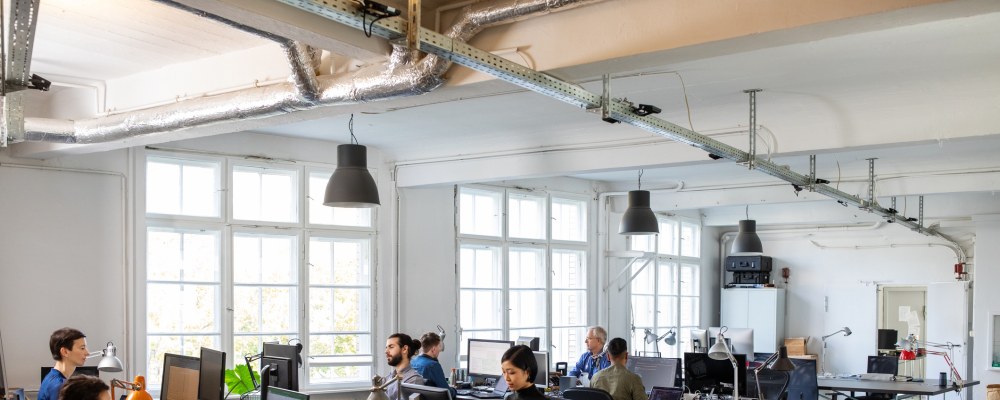
Today in Helsingin Sanomat, TEK’s Project Manager for International Experts Owain Hopeaketo coauthored a guest editorial on the future labour market challenges facing Finland. The text focused on the importance of international experts in Finland’s future growth areas.
“The current high unemployment figures make it seem to some that we don’t need an international workforce at the moment”, Hopeaketo explained about the purpose of the article. “We wanted to make clear that the future investments that will improve the job market won’t succeed without a skilled international workforce already here. It’s about more than just our economy; it is also about defense and security of supply.”
“The data shows there is no alternative, we need a better immigration model, to invest in integration and reskilling and truly tackle a discriminatory labour market. We cannot just wait for the labour market to get better while using it as an excuse for doing badly as a country for our international workforce.”
The editorial was written together with Barona's Elina Santalahti as a part of the “Immigration is National Interest” campaign. The original text can be found from Helsingin Sanomat’s website here, but an English translation is posted below.
Finland's economy and security of supply rely on foreign experts
Despite the current difficult economic situation, major investments are being planned across Finland in areas such as the green transition, data centers, and defense industry projects. If realized, these investments will bring jobs and economic growth to Finland. At the same time, they will improve security of supply by increasing domestic energy production, creating new infrastructure, and promoting the development of defense technology.
The implementation of these projects requires a sufficient supply of skilled labor. Unfortunately, the necessary expertise is not available in Finland to the extent that the high unemployment figures would suggest.
A recent population forecast by the MDI research institute paints a bleak picture of Finland's future. In addition to sparsely populated areas, the populations of major regional centers such as Kuopio and Vaasa are beginning to decline. An increase in the working-age population is a prerequisite for positive economic development, and in today's Finland, this depends on strong immigration.
Last year, only 35 municipalities had more births than deaths. At the same time, jobs related to the green transition will be produced in sparsely populated areas where an increasing proportion of the population is of retirement age.
The significance of internal migration to help this is minor. According to Barona's work life research, only about 16 percent of Finns would consider moving to a new region for work. These results have remained consistent for a long time, regardless of economic conditions.
The domestic labor force is therefore insufficient to meet regional demand, and it is difficult to find enough skilled workers from within Finland's borders.
There is a growing need for immigrants and foreign skilled workers, but many other European countries are also looking for skilled workers for their fastest-growing industries. According to the “Finland as a Business Location” report (pdf) published in 2023, 78 percent of companies suffer from a shortage of skilled workers. When the economy turns upward, this shortage of skilled workers will only deepen.
The technology industry plays a key role in, for example, the development of artificial intelligence and quantum computing. These fields are already dependent on international experts. Last year, nearly 30 percent of those who graduated with a degree in technology from Finnish universities were non-Finnish citizens. These international experts are vital to our growth and prosperity.
A report published in August by the Academic Engineers and Architects in Finland (TEK) and the Union of Professional Engineers states that many foreign technology experts living in Finland are experiencing challenges. Unemployment among international experts in the technology sector was more than twice as common as a year earlier. In addition, job satisfaction had declined significantly compared to the previous survey, and fewer people believed in their chances of building an interesting career in Finland.
Only 3% of respondents felt that they were always or almost always treated equally with Finnish applicants when looking for work, and only 16% of foreigners already working in Finland believed that they were always or almost always treated equally with their Finnish colleagues.
Only 45% of respondents considered Finland's reputation among international experts to be good, compared to 58% of respondents in the previous year's survey. The proportion of those planning to stay in Finland permanently had fallen from 54% to 47% in one year.
Improving the current situation requires action on many fronts. We must facilitate retraining, support the integration of international experts, and combat discrimination. We must strengthen work-based immigration and make it easier to obtain a permanent residence permit.
Finland needs international experts. We must ensure that their expertise is available now and in the future.
Finnish version of this text was published as Vieraskynä in Helsingin Sanomat on October 13, 2025.